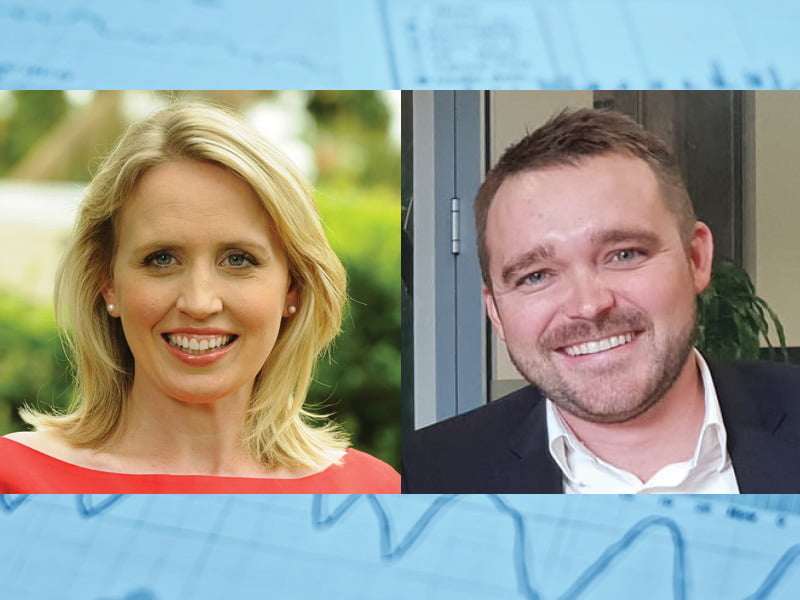The Australian tech sector is booming. It is one of the nation’s fastest growing industries with fantastic opportunities on the horizon.
Our industry is also becoming extremely attractive as a career path with increasing numbers of jobseekers seeing a move into the tech sector as a wise decision for their future.
The Tech Council of Australia’s recent research shows that there are more than 860,000 people – or one in 16 working Australians – employed in tech jobs around the country.
They’re world-class technology professionals in a vast array of roles, with hundreds of different skill sets. They’re also voters.
Right now, there is only one game in town. The Federal Election has the nation’s media fixated on every move made by our political leaders.
As with most election campaigns, the economy and jobs remain key pivot points that can swing the electorate one way or the other.

This focus on jobs positions the technology sector and its growing number employees front-and-centre when it comes to voting-power in key electorates that are a must win for any party seeking to form government on the 21st of May.
Critically, the biggest number of tech workers live in either battleground outer metro seats that are key for the two major parties to win government, or in the inner-city seats being contested by teal independents, and who could be central in a minority government negotiation. That means tech workers and jobs are a key issue for whoever forms government at the election.
In Perth, the seat of Swan sits on a margin of just 3.2 per cent. Recent research by the Tech Council of Australia shows that there are 5,200 voters in the electorate of Swan who work in the technology sector – more than enough to determine which way the seat swings.
The seat of Curtin, another tightly contested seat, has 5,800 tech workers, the most for any electorate in WA.
It’s the same story in Melbourne. The third most marginal seat in the country – Chisholm in the eastern suburbs of Melbourne – is on a hair’s-breadth margin of 0.5 per cent. Only a few hundred voters need to vote differently at this election for the seat to change hands. It’s a key seat for both major parties if they want to form government.
There are currently 9,100 tech industry professionals employed in the seat of Chisholm whose votes will be critical for whoever wants to take the seat. Meanwhile, in the key Melbourne seats where Teal independents are running, such as Goldstein and Kooyong, there are 10,500 and 11,100 tech workers respectively.
The same dynamic is evident in NSW. Must win seats for the major parties like Bennelong, Reid and Paramatta in Sydney’s west and north have big groups of tech workers living in them. Bennelong is the top electorate in the country for tech workers, with 18,000 tech workers. Reid and Paramatta have 15,800 and 13,900 each.
But as in the other states, the seats with Teal independents running the NSW marginal seat of Wentworth, only 1.3 per cent separates the Liberal’s Dave Sharma and independent candidate Allegra Spender. There are 8,700 tech sector workers employed in Wentworth, again well-placed to decide who will represent them after the election.
It’s little wonder then, that the rapid development of the tech industry in Australia and the jobs it is creating, has been recognised both sides of politics.
The most recent Federal Budget included key measures that will directly support our sector including the change to Australia’s Employee Share Schemes (ESS) regulatory framework and measures to assist with re-skilling women into the technology sector.
On the other side of the political divide, Labor also pledged its support to meet the jobs goal of the Tech Council of Australia.
Prior to the start of the federal election campaign, the Leader of the Opposition, Anthony Albanese, visited the headquarters of one of our member companies in Sydney to announce that he will commit a future Labor Government to supporting the objective of having 1.2 million people employed in tech jobs by 2030.
This bi-partisan support is welcome and extremely prudent considering the number of people employed in our industry in battleground seats.
For whoever forms government after the election, the tech sector offers an answer to some of Australia’s biggest problems, from creating good, high-paid jobs in Australia, to lifting national productivity.
However, political engagement is always a door that swings both ways.
As an industry we must be ready, willing, and able to work with all sides of politics. While we all have our own individual political ideas and preferences, the potential opportunities for growth in our industry is too important to risk playing ‘politics’ with politics.
We need to be an open and transparent industry that is willing to work with whoever leads the nation following the next election.
We must foster an understanding of the critical role the tech industry will play in driving economic activity, especially as Australia recovers from the impacts of the global covid-19 pandemic.
Of course, we will always unequivocally advocate for policies that support our growing tech sector. However, we need to do so with respect and in a spirit of collaboration with our political stakeholders.
The future of our industry, its growth and development are too important to risk playing politics for politics sake.
Kate Jones is an executive director at the Technology Council of Australia and was formerly a long time minister in the Queensland state government across a range of senior portfolios, including most recently as Minister for Innovation.
Wyatt Roy is an executive director at the Technology Council of Australia and is managing director for Australia at Afiniti.com. From 2010 to 2016, he was the Member for Longman in the Australian Parliament and served as Assistant Minister for Innovation in the Turnbull government.







